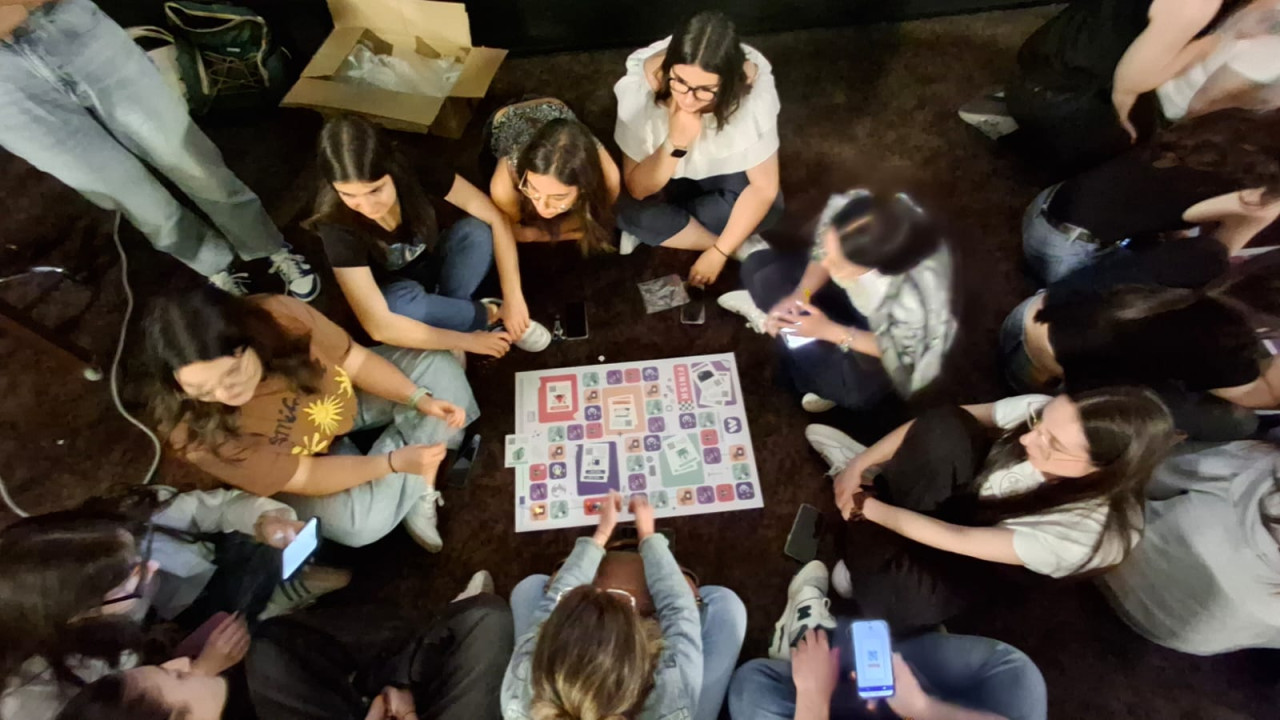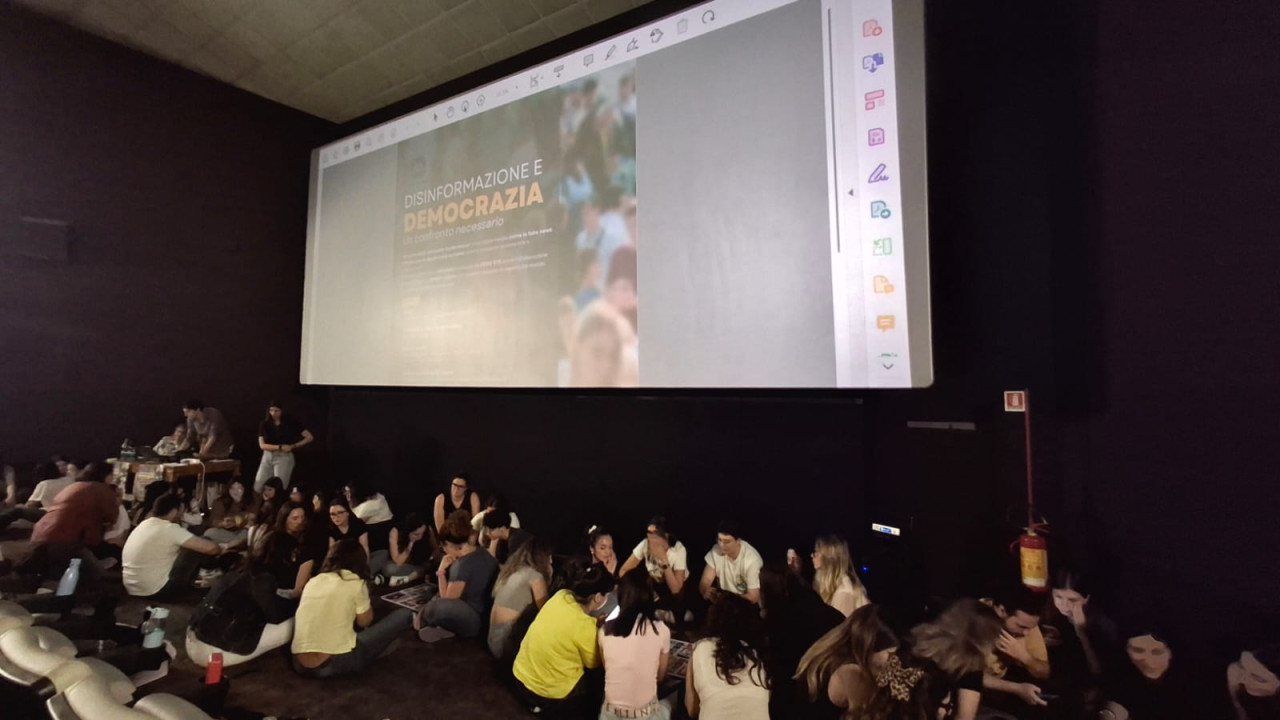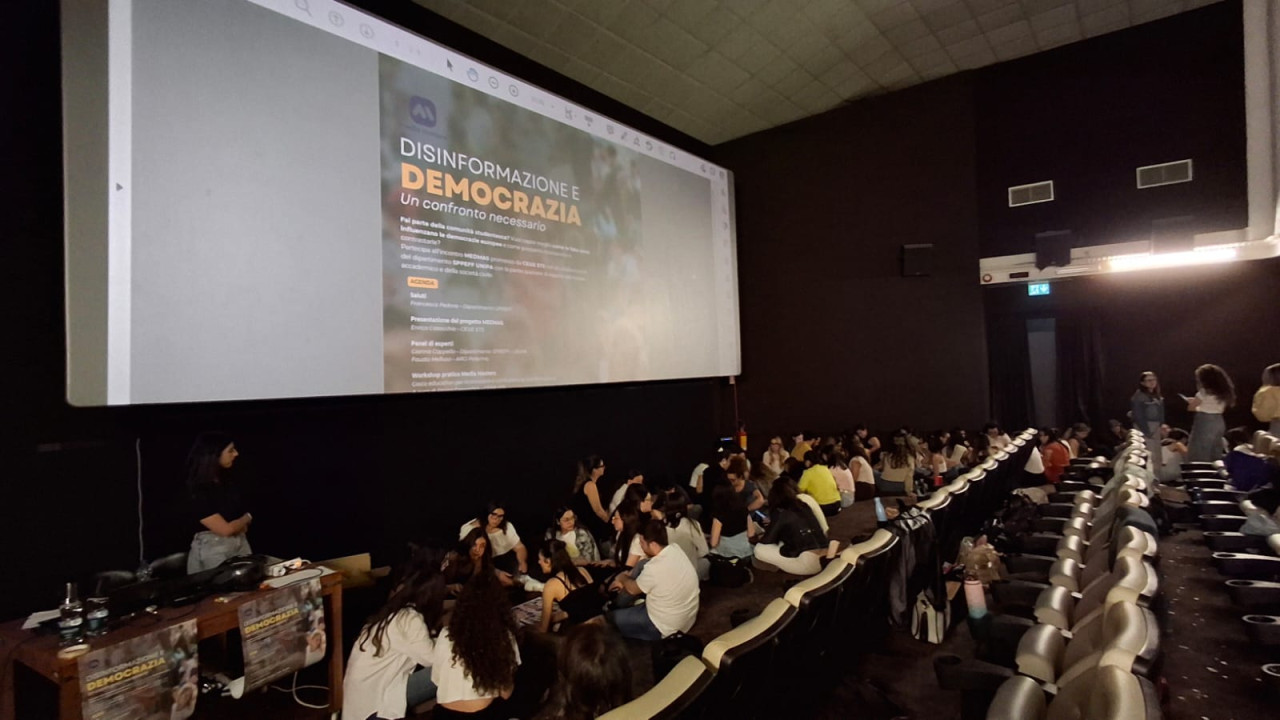On May 27, 2025, at the Cinema Marconi in Palermo, the Conference on the Impact of Fake News on European Democracies was held, an in-person event organized within the course of Professor Francesca Pedone at the University of Palermo. The initiative, lasting about two and a half hours, offered a collective reflection on the phenomenon of disinformation, providing both theoretical and practical tools to address its political, social, and cultural consequences.
The event was introduced by Enrico Casacchia, project manager of the research center CESIE, who highlighted the relevance and seriousness of the issue. In a context characterized by constant and pervasive information flows, he pointed out how young generations often lack the necessary tools to distinguish between reliable information and manipulative content. Disinformation is not just a journalistic mistake: it can become a true instrument of propaganda and social control, with tangible effects on the quality of democratic participation.

Among the distinguished speakers, Professor Gianna Cappello, from the SPPEFF Department at the University of Palermo, provided an in-depth analysis of the phenomenon, emphasizing the strategic role of education. According to Cappello, combating fake news requires more than fact-checking: it is necessary to promote a culture of media literacy starting from school.
She proposed integrating media education into school curricula as a cross-cutting skill, essential to form aware, critical, and responsible citizens. Disinformation, she stated, fits into a communicative culture dominated by simplification, polarization, and spectacularization: therefore, an educational approach that fosters critical thinking and participatory analysis is needed. She also emphasized the importance of inclusive pedagogical practices that reach students from diverse backgrounds. In this context, projects like MEDMAS were identified as innovative tools for more effective civic and digital education.
Alongside the academic dimension, the conference also offered a concrete perspective thanks to the intervention of Fausto Melluso, president of ARCI Palermo and activist in communication, migration, and social inclusion fields. Melluso focused on how fake news influence the public representation of migration phenomena, contributing to the construction of toxic and misleading narratives.

Drawing from examples from Palermo’s reality, he showed how disinformation can fuel xenophobic attitudes and legitimize exclusionary policies. He denounced the connection between distorted public narratives and concrete exclusion: from housing insecurity to limited access to rights, up to marginalization within informal networks. Melluso called for renewed civic commitment to deconstruct these stereotypes and promote alternative narratives based on real experiences and dialogue. Civil society organizations, like ARCI, he reiterated, play a key role in public education and awareness-raising.
In the second part of the conference, students actively participated in a practical session with the board game Media Masters, a simulation based on real disinformation scenarios. The game provided a concrete opportunity to experiment with strategies to analyze and deconstruct misleading messages, focusing on collaboration and critical learning. The activity was well received, stimulating discussion and self-reflection among participants.
The Palermo conference represented an important interdisciplinary opportunity to discuss a highly topical issue. Between theoretical analysis, testimonies from the territory, and innovative educational tools, the event helped raise awareness about the urgency of combating disinformation through education, participation, and active citizenship. A clear message emerged: defending democracy also means knowing how to recognize and counter false news.
Report della conferenza: https://cesie.org/risorse/medmas-conferenza-impatto-fakenews-democrazie-europee/
